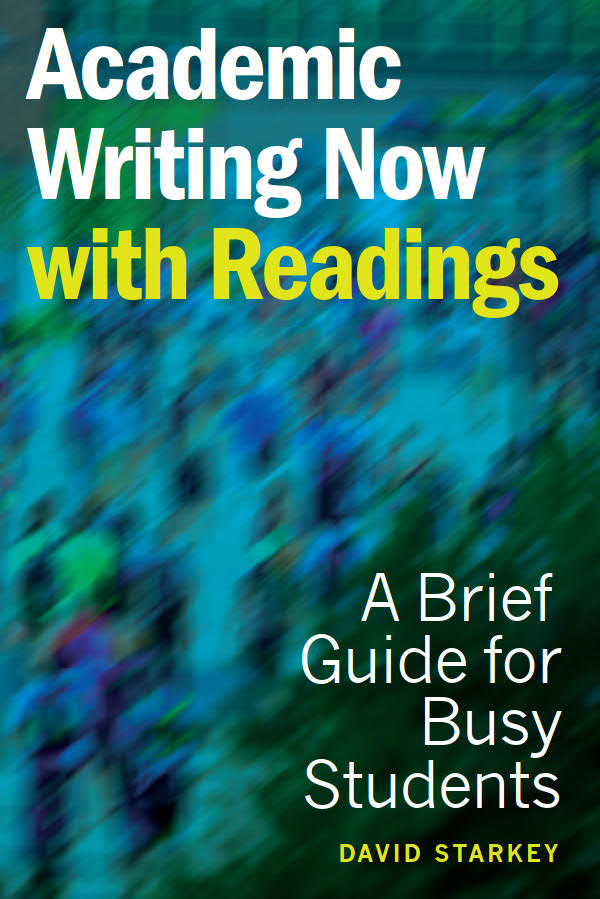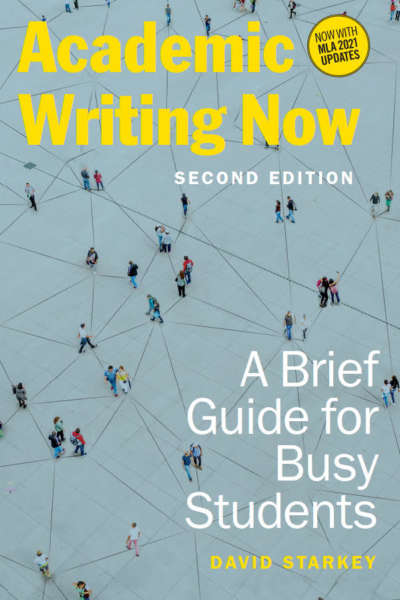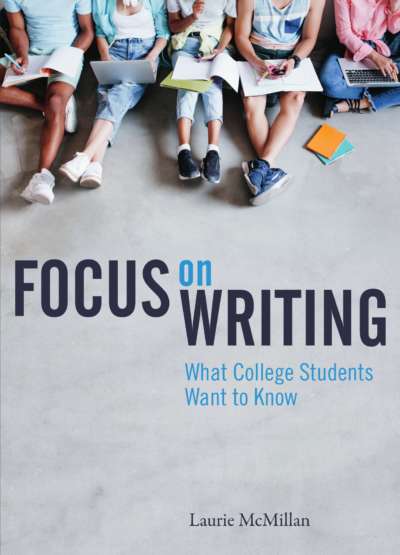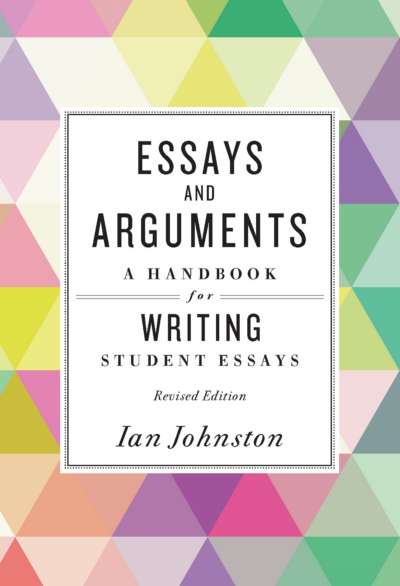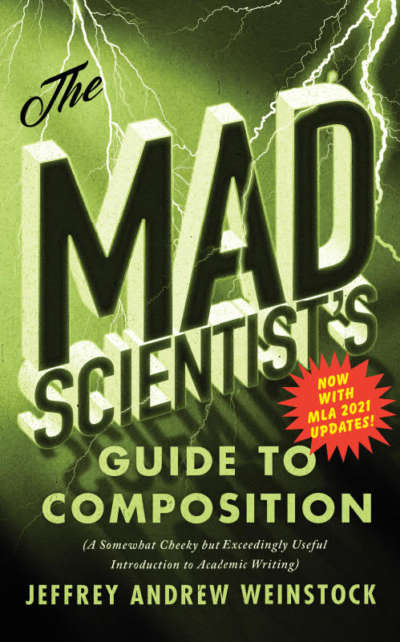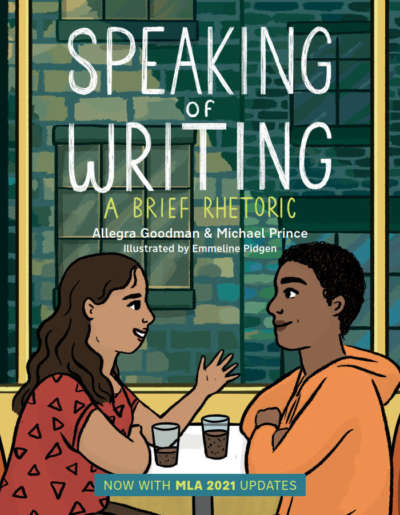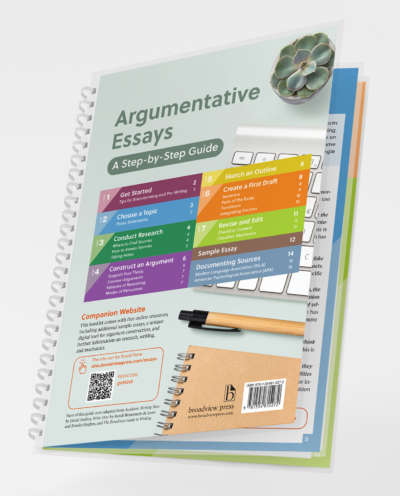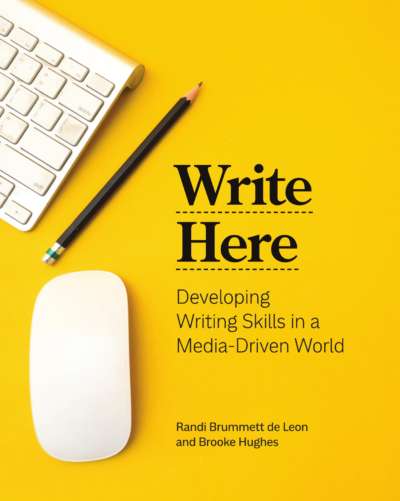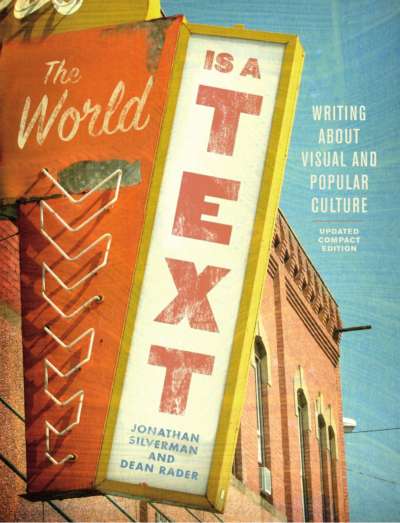Academic Writing Now with Readings is a rhetoric designed to cover the basics of a college writing course in a concise, student-friendly format. Anything inessential to the business of college writing has been excluded. Each chapter concentrates on a crucial element of composing an academic essay and can be read in a single sitting. The book is loaded with “timesaver tips,” ideas for making the most of the student’s time, along with occasional warnings to avoid common errors made by student writers. Each short chapter concludes with questions and suggestions designed to reinforce the chapter’s key elements, facilitate small-group interactions, and trigger class discussion.
A compact selection of lively, topical readings provides thought-provoking examples for analysis and discussion.
Comments
“Academic Writing Now with Readings is an essential companion to students embarking on the journey of strengthening and refining their writing craft. Its organization into bite-sized chunks makes the subject matter approachable and easy to understand. What I like best is David Starkey’s ability to demystify key concepts and give practical advice that students readily follow and apply to their writing. Complete with engaging and interactive exercises at the end of each chapter, Academic Writing Now with Readings is an indispensable resource for students aiming to hone their writing skills. This edition’s inclusion of fresh readings on contemporary issues will spark both conversation and research interests among students.” — Kristina Chesaniuk, Auburn University
“Academic Writing Now with Readings works well as a starting point, a review or refresher, and a scaffold for student writers at all levels in composition and academic writing courses. I find the emphasis on time management and the succinct explanations especially helpful while prepping for class. The inclusion of themed readings—even including readings on the very current use of AI—works well both for in-class activities and for discussions on audience, impact, and Kairos of topics. The readings offer me a set of texts to use as I need, and they expose students to a wide range of ideas to explore before venturing into their own research.” — Heather Cross, University of Alabama at Huntsville
Preface to Academic Writing Now with Readings
Preface for Instructors: Busy, Busy, Busy
Introduction for Students: Strategies for Succeeding as a College Writer
Part One Ready, Set . . .
- Chapter 1 Academic Writing: An Overview
- Why Write?
- Writing as Inquiry and Process
- High-School vs. University English
- What Do Professors Really Want?
- Working Alone
- Working with Others
- Chapter 2 Academic Reading
- Effective Reading Habits
- Annotation
- Double-Entry Journal
- Analysis
- Summary
- Reverse Outline
- Paraphrase
- Quotations
- Working Alone
- Working with Others
- Chapter 3 Ideas into Text
- Getting Started
- Lightning Research
- Invention
- The Three Appeals
- Discussion
- Sooner Rather Than Later
- Working Alone
- Working with Others
- Chapter 4 Arguments and Organization
- Thesis Statements
- Outlines
- Considering Other Perspectives
- Topic Sentences
- Working Alone
- Working with Others
- Chapter 5 Researching Your Topic
- The CARS Checklist
- Library Databases
- Books
- Internet Sources
- Working Alone
- Working with Others
Part Two Go
- Chapter 6 Introduction: Hooking Your Reader
- Opening Sentences
- Topic Overview
- Ending with Your Thesis
- Working Alone
- Working with Others
- Chapter 7 Body Paragraphs: And I Ought to Keep Reading Because?
- Paragraph Structure
- Transitions
- Expert Opinions and Concrete Evidence
- Quotations
- Interviews and Surveys
- Narrative and Description
- Multimodal Moves
- Working Alone
- Working with Others
- Chapter 8 Conclusion: Wait . . . Don’t Stop
- Conclusion Dos and Don’ts
- Working Alone
- Working with Others
Part Three Go Again
- Chapter 9 Taking Another Look
- Revision
- Editing
- Working Alone
- Working with Others
- Chapter 10 Handing It Over
- Design and Presentation
- Proofreading
- Titles
- Damian’s Revision
- Knowing When to Stop
- Working Alone
- Working with Others
Part Four Readings
- Artificial Intelligence
- “The End of High-School English,” Daniel Herman
- “What ChatGPT Can’t Teach My Writing Students,” Jonathan Malesic
- “Ban or Embrace? Colleges Wrestle with A.I.-Generated Admissions Essays,” Natasha Singer
- “Artificial Intelligence May Be Coming for Your Job,” Jack Kelly
- “What’s the Future for A.I.?,” Cade Metz
- Can’t We All Just Get Along?
- “America Is Growing Apart, Possibly for Good,” Ronald Brownstein
- “Free Speech Doesn’t Mean Free Rein to Shout Down Others,” David French
- “Conservatives and Liberals Are Wrong About Each Other,” Victoria Parker
- “The Real Reason We Don’t All Just Get Along,” Jeremy E. Sherman
- Our Changing Planet
- “5 Tips on How to Live Like a Lichen,” A. Laurie Palmer
- “How Are Shein Hauls Making Our Planet Unlivable?,” Marthe de Ferrer
- “How to Be Sort of Vegan—and How It Would Help the Planet,” Dino Grandoni
- “Weather Disasters Have Become Five Times as Common, Thanks in Part to Climate Change,” Eric McDaniel
- That’s Entertainment
- “All Rap Is Local,” Sheldon Pearce
- “The Rise of BookTok: Meet the Teen Influencers Pushing Books Up the Charts,” Alison Flood
- “Why Playing Games Is Good for You,” Ellie Smith
- “Barbie: The Patriarchy, the Existentialism, the Capitalism,” Charles Bramesco
- “A Critical Theory of Binge Watching,” Jake Pitre
- Campus Life
- “Five Pieces of Advice for Freshmen Struggling to Adjust to Campus Life,” Ellie Adam
- “College Student Political Beliefs and Voting—What Matters?,” Marybeth Gasman
- “What ‘The Red Zone’ on College Campuses Teaches Us About Sexual Assault,” David Oliver
- “College Students Were ‘Woke’ in the ’60s, Annoying to Their Elders and Drivers of Social Change. Meet Their Successors,” Michael S. Roth
- “What Happened When This College Student Drank Too Much, Too Quickly,” Ben Yeager
Appendix I Genres of Academic Writing
- Analyzing a Text
- Arguing a Position
- Proposing a Solution
- Making an Evaluation
Appendix II A Brief Guide to Documentation
- Identifying and Avoiding Plagiarism
- Annotated Bibliography
- MLA 9: Citing Your Sources
- MLA 9: Sample Citations
- APA 7: Citing Your Sources
- APA 7: Sample Citations
Permissions Acknowledgments
Index
David Starkey is Emeritus Professor of English at Santa Barbara City College, where he served as Director of Composition and Creative Writing. He is the author of Creative Writing: Four Genres in Brief and the editor of Teaching Accelerated and Corequisite Composition and two collections of scholarly essays on composition and creative writing: Teaching Writing Creatively and Genre by Example: Writing What We Teach.
Read Chapter 3: Ideas into Text from Academic Writing Now with Readings! (Opens as a PDF.)
This text has a companion site with resources for instructors. The site hosts multiple-choice quizzes to test student comprehension and short answer questions for student discussion and reflection.

